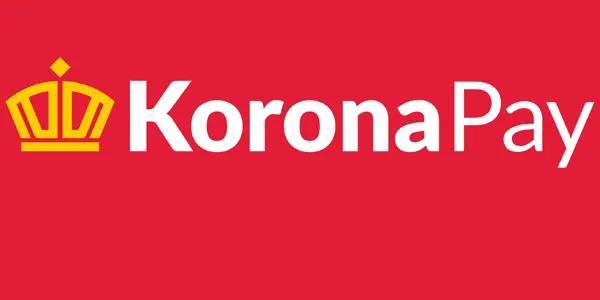
KoronaPay in the World of Online Casinos: Is the Russian System Ready to Compete Globally?
KoronaPay, a product of the Russian payment infrastructure “Zolotaya Korona,” is expanding its footprint beyond domestic markets and establishing itself as a financial alternative for underbanked regions in Europe and Asia. With the online casino industry seeking flexible and secure transaction methods, the question arises—can KoronaPay position itself as a viable and compliant solution on the international stage?
KoronaPay’s Entry into the Global Financial Ecosystem
Since 2023, KoronaPay has shown persistent interest in international expansion, particularly focusing on EU and CIS corridors. Its appeal lies in low transaction fees and accessibility for migrant populations who rely on fast, low-cost transfers. As of February 2025, KoronaPay operates in over 25 countries, including Poland, Germany, and Kazakhstan, offering cross-border transfers without the need for a traditional bank account.
This simplicity resonates with many online casino users in Eastern Europe and Central Asia, where traditional banking can be restrictive. With mobile-first infrastructure and integration with local agents, KoronaPay is becoming more appealing to individuals who participate in cross-border gambling platforms.
However, its progress is shadowed by its origins in Russia, which raises compliance concerns for platforms operating under strict AML (anti-money laundering) and KYC (know-your-customer) regulations in jurisdictions like the EU and UK.
Challenges in Licensing and Regulatory Compliance
KoronaPay’s effectiveness in casino transactions depends heavily on how it aligns with international financial norms. In 2022, the company registered its EU entity in Cyprus, attempting to sidestep some geopolitical restrictions. Nevertheless, regulators in Western Europe remain cautious, particularly with financial providers linked to Russia amidst ongoing sanctions.
To appeal to international operators, KoronaPay must continuously prove its compliance through transparent audits, anti-fraud technologies, and cooperation with financial watchdogs. While some gambling platforms in Latvia, Georgia, and Armenia have begun integrating the service, broader acceptance remains tentative.
Key partnerships with regulated gaming operators would provide a confidence boost. Yet, by February 2025, few Tier-1 gambling platforms list KoronaPay among their preferred methods, limiting its influence on regulated markets.
Market Potential in Regions with Limited Banking Access
KoronaPay’s strongest appeal is in its ability to serve players from banking-fragmented regions. Countries like Uzbekistan, Moldova, and parts of the Balkans represent lucrative yet underserved gambling audiences. These players often struggle with payment gateway limitations on major casino platforms.
In these regions, KoronaPay is emerging as a practical workaround. With integration into local agent networks and support for multi-currency conversions, it offers an alternative to both card payments and e-wallets, which are often unavailable or unreliable.
Moreover, crypto restrictions in these jurisdictions have created a void that services like KoronaPay can fill. The ability to conduct fiat transfers swiftly and with minimal oversight appeals to a demographic looking for frictionless deposits into international casinos.
Adoption Trends Among Gambling Operators
While top-tier European operators are hesitant, smaller gambling platforms in grey markets are quicker to embrace KoronaPay. Brands licensed in Curaçao or Montenegro have started supporting this payment system to attract niche audiences from CIS countries.
This adoption is driven by user demand rather than corporate strategy. Many operators report higher conversion rates and lower transaction failure with KoronaPay compared to lesser-known wallets. This grassroots integration gives the service incremental legitimacy within gambling ecosystems.
Yet, without mainstream gambling licences or regulatory endorsements, the system remains on the periphery of regulated iGaming. To gain traction, KoronaPay would need to forge relationships with software aggregators and PSPs (Payment Service Providers) that enable broader adoption across the industry.

KoronaPay’s Technological and UX Positioning
From a technology standpoint, KoronaPay offers a clean interface and low onboarding barriers. It requires only a phone number and passport for identity verification, a factor that simplifies access for users from lower-infrastructure regions.
Additionally, its integration API allows online platforms—including casinos—to embed the payment method with relative ease. This simplicity is attractive to gambling sites seeking lightweight, low-cost onboarding of new payment channels.
Still, the absence of features like instant withdrawal, chargeback support, or smart transaction categorisation limits its appeal to high-volume players and affiliates who require robust financial management tools.
Opportunities for Future Growth in iGaming
As regulatory models evolve in emerging markets like Kazakhstan, Serbia, and even parts of Africa, KoronaPay may find stronger footing. iGaming operators in these zones are more receptive to alternative financial systems that operate outside of legacy banking models.
To stay relevant, KoronaPay should focus on acquiring financial technology certifications, expanding multilingual support, and enhancing fraud detection capabilities—key demands from both casino platforms and users.
Finally, aligning with responsible gambling initiatives and developing clearer transaction tracking will be crucial for gaining trust in jurisdictions that prioritise transparency and user protection. Without this evolution, KoronaPay risks remaining a niche solution with limited strategic value in global gambling commerce.
